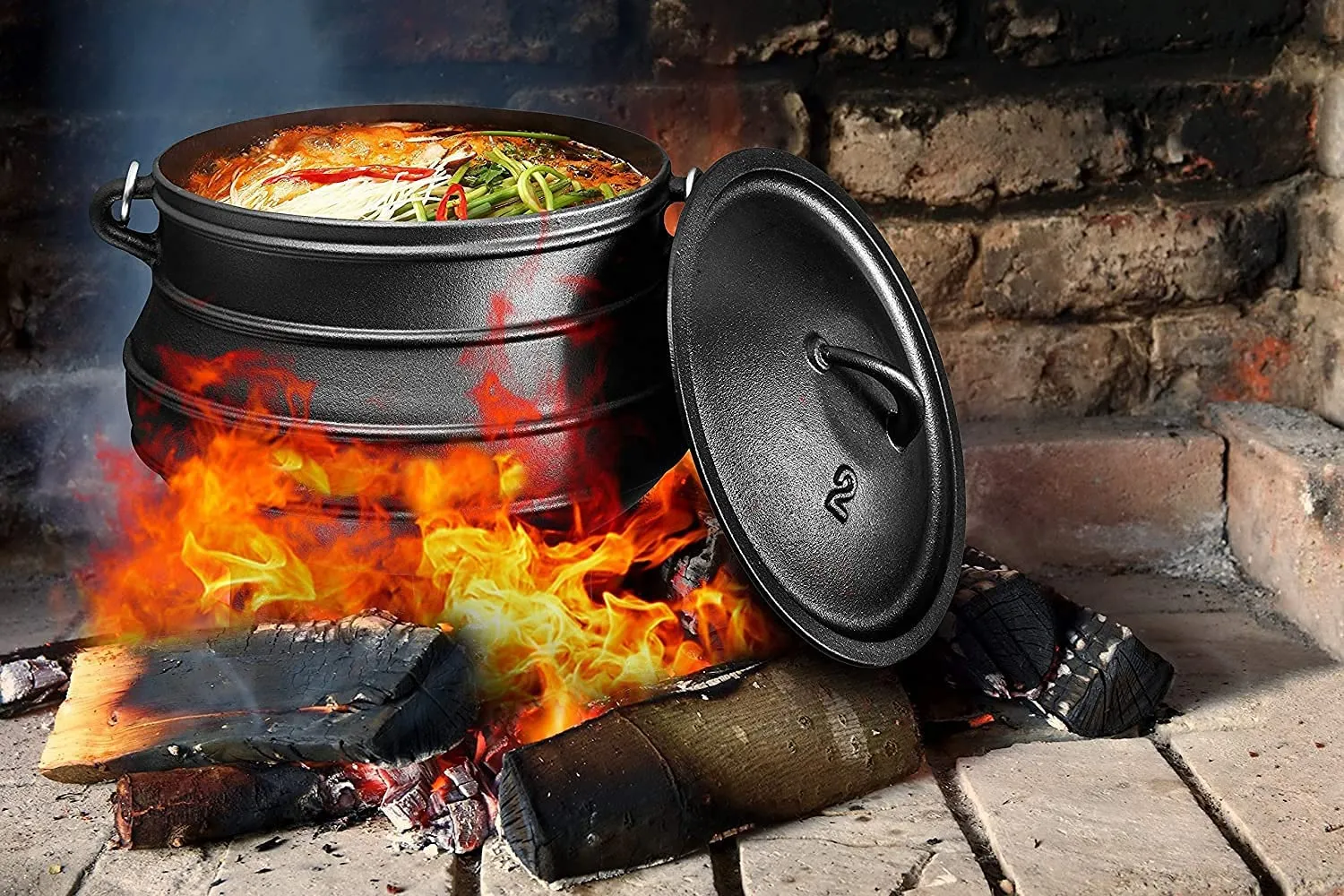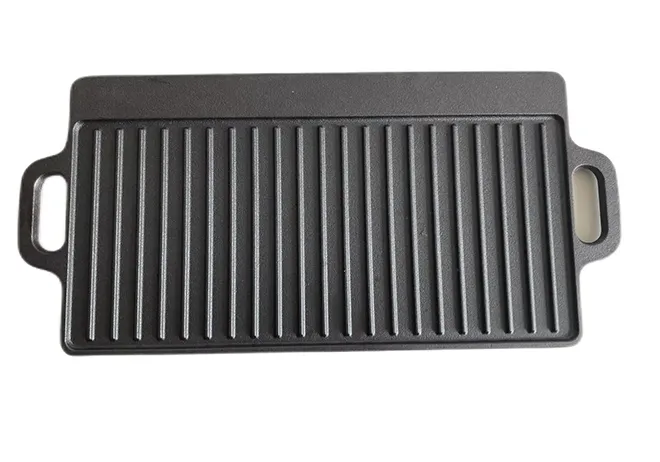
2 月 . 04, 2025 03:13
Back to list
cast iron pot for camping
The allure of the great outdoors is undeniable. Whether you're a seasoned camper or a novice seeking adventure, the tools you bring along can make or break your experience. Among these essential tools, a cast iron pot reigns supreme for outdoor cooking. This centuries-old kitchen staple offers a blend of durability, versatility, and unrivaled heat retention that makes it the perfect companion for camping.
In terms of real-world experience, many campers testify to the reliability of a well-seasoned cast iron pot. The seasoning process natural to cast iron creates a non-stick surface that improves with use. This makes cleaning easier—an essential factor when you're in the wilderness and water might not be readily available. Campers recount how they can simply wipe out leftover food residues with minimal water and effort. For those uncertain about the seasoning process, a brief overview instills confidence before your camping trip, coat the pot with a thin layer of vegetable oil and place it in a hot oven or directly over your camping fire. This creates a polymerized layer that resists sticking and rust. The more you use the pot and reapply seasoning, the better it gets. Transport and storage are also considerations in camping gear. While cast iron is heavier than materials like aluminum, the single-pot versatility offsets the need to carry multiple items. Plus, the design of many camping cast iron pots includes features like wire bales for easy hanging over a fire and lids that double as griddles or plates. These thoughtful inclusions further enhance their utility without additional weight. In conclusion, a cast iron pot is not merely an accessory for camping but a central component of a functional outdoor cooking kit. Its durability, versatility, and health benefits make it an investment in future camping excursions. Campers who have embraced cast iron often express a sense of connection to the simplicity and authenticity of cooking over an open flame, turning meals into memorable experiences. Thus, if planning an adventure into the heart of nature, consider a cast iron pot not just as cookware, but as a cornerstone of outdoor living that brings expertise, authority, and trust to your wilderness kitchen.


In terms of real-world experience, many campers testify to the reliability of a well-seasoned cast iron pot. The seasoning process natural to cast iron creates a non-stick surface that improves with use. This makes cleaning easier—an essential factor when you're in the wilderness and water might not be readily available. Campers recount how they can simply wipe out leftover food residues with minimal water and effort. For those uncertain about the seasoning process, a brief overview instills confidence before your camping trip, coat the pot with a thin layer of vegetable oil and place it in a hot oven or directly over your camping fire. This creates a polymerized layer that resists sticking and rust. The more you use the pot and reapply seasoning, the better it gets. Transport and storage are also considerations in camping gear. While cast iron is heavier than materials like aluminum, the single-pot versatility offsets the need to carry multiple items. Plus, the design of many camping cast iron pots includes features like wire bales for easy hanging over a fire and lids that double as griddles or plates. These thoughtful inclusions further enhance their utility without additional weight. In conclusion, a cast iron pot is not merely an accessory for camping but a central component of a functional outdoor cooking kit. Its durability, versatility, and health benefits make it an investment in future camping excursions. Campers who have embraced cast iron often express a sense of connection to the simplicity and authenticity of cooking over an open flame, turning meals into memorable experiences. Thus, if planning an adventure into the heart of nature, consider a cast iron pot not just as cookware, but as a cornerstone of outdoor living that brings expertise, authority, and trust to your wilderness kitchen.
Previous:
Next:
Latest news
-
Extra Large Round Cast Iron Griddle - Heavy Duty Griddle Plate for Even Heating & Versatile CookingNewsJun.10,2025
-
Top Brands of Cast Iron Cookware Durable & Versatile Cast Iron Skillet BrandsNewsJun.10,2025
-
Enamel Coated Cast Iron Pot Durable, Non-Stick & Even Heat CookingNewsMay.30,2025
-
2 Quart Dutch Oven Durable Cast Iron, Even Heating & VersatileNewsMay.30,2025
-
Best Chinese Wok Price Authentic Iron Pans, Fast Shipping & DealsNewsMay.29,2025
-
Non-Stick Cast Iron Skillet with Lid Durable & Easy-Clean PanNewsMay.29,2025


